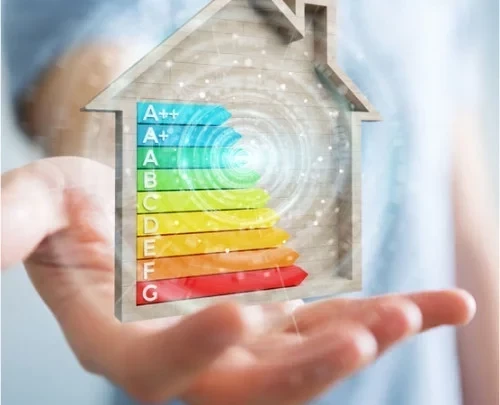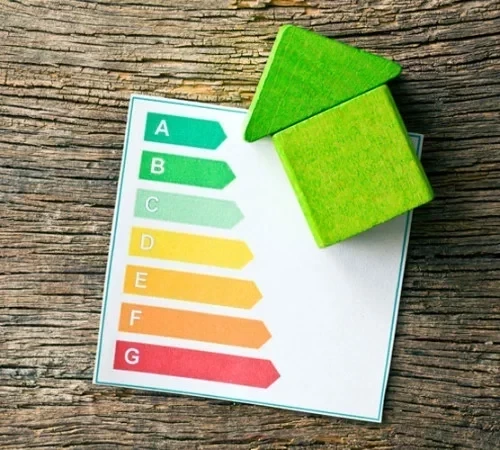When it comes to property certificates, the wide range of different types and the legislation around each one can feel intimidating to those who haven’t done a considerable amount of research.
However, the team here at energyperformancecertificates.co.uk has years of experience in this industry, meaning we know our way around all kinds of property certificates and the rules & requirements associated with them.
To help you get your head around everything, we’ve pulled together this guide covering everything you need to know about energy performance certificates and the ratings available – specifically for commercial buildings.
We’ll explain what an EPC is, how the ratings work and when you need one. We’ll also explain the incoming changes and new requirements around performance certificates for commercial buildings.
The chances are, you will have seen an energy performance certificate about in some form. Have you purchased a washing machine or tumble dryer recently? Perhaps a fridge freezer? There’s normally a big label on the front that has red and green bars. The label tells you how energy efficient that particular washer or tumble dryer is, so you can understand how much it might cost you to run, and also the possible impact it will have on the environment.
That, in simple terms, is an energy performance certificate. The key difference is that, in this guide, we are talking about EPCs on a much bigger scale.
Commercial EPCs assess how energy efficient a property or building is. Buildings subject to an EPC are given ratings from A-G, with A being the most efficient, and G being bad news. The colour scale for buildings is very similar to the one described above for white goods.

When you are given an energy performance certificate you get the certificate, of course, and then an associated report.
On this certificate will be a rating from A-G, with A being the most efficient, and G being the least efficient. These ratings are based on a number of different factors, ranging from the way the building has been built to the wattage of the interior lights.
Within the report will then be more detail about how the assessor has arrived at their grading. The report should also include details of how you can carry out improvement work to increase your rating and ultimately make your building more energy efficient.
Historically, EPCs for commercial buildings have, essentially, been a nice to have. However, the government is starting to crack down on EPCs under the recently published Minimum Energy Efficiency Standards (MEES).

Assuming you are a landlord, you will need a commercial EPC if you are renting out your property, selling your property or renewing a lease. Valid EPCs are also required for ‘new build’ homes that have recently been finished. This is called an ‘on construction’ certificate and is essential if you are to comply with building regulations.
Fail to provide your prospective buyers or tenants with a valid EPC and you could be subject to a large fine. This is usually calculated as being 12.5 percent of the property value, with a maximum fine of £5,000. Trust us, it’s much cheaper to get a performance certificate!
Government regulations also state that you must display an EPC, by fixing it to your building, if it is frequently visited by the public and/or has a total useful floor area of over 500m2.
So, you know what an EPC is, you know how the ratings are calculated, and you know that the dream is to have a zero-rating – where your building isn’t putting any carbon dioxide into the atmosphere!
However, the question on everyone’s lips is inevitably going to be around the new Minimum Energy Efficiency Standards. What are they? Who do they impact? How are they relevant?
First, we must understand where they have come from. With climate change being very high on everyone’s agenda nationally, and internationally, the British Government has made a commitment to be net zero by 2050.
Net zero means that the amount of carbon dioxide we put into the atmosphere is no more than we are taking away. Hitting net zero is thought to be the best way to tackle climate change, which is why the UK Government is the first to set a legally binding target of being net zero in 30 years’ time.
And this is exactly where the MEES regulations have come from. First introduced in 2018, the standards placed a duty on landlords to grant new leases, or renew existing leases, on properties that didn’t have an adequate energy performance certificate (adequate was defined as E grade or higher).
Soon, things will change again. By April 2023, the regulations will start to apply to all private rented properties as well as commercial properties. From this point onwards, any landlords renewing or issuing leases on commercial and private rented properties, without an adequate EPC certificate in place, will be acting unlawfully.
And the new EPC regulations coming in during 2023 are potentially only the start. Talks are ongoing around doubling down on the standards in April 2030, where it could become necessary for commercial and private rented EPC ratings to be grade B or higher.
It’s anticipated that, whilst this may incur some extra costs for landlords, this could be offset by the potential extra income from tenants and the cheaper building running costs.

These checks are done in person by our highly trained assessors. They will come out to your building and inspect all rooms. They will look at your insulation, heating systems, air conditioning units and more. They will also take photos and measure floor space as part of their assessment.
Where they can’t evidence certain things, they will use specialist software to make assumptions based on the age and construction of the property.
Once they are done, they’ll complete the certificate and associated report and usually have them both with you the following day.
Here at energyperformancecertificates.co.uk, we are proud to offer a first-class service at very competitive prices. We offer commercial EPCs for as little as £95 – but please do bear in mind that our overall price will depend on various things such as the age and condition of your building(s).
Here are a few of the most common ways you can up your rating:
Experience. That really is it – plain and simple. We’ve been in this industry for over a decade and know energy performance certificates like the back of our hands. Our team are all highly professional and fully qualified. They are also committed to giving you the best possible service.
Here are three reasons why we think you should choose us for your EPC needs:

We are proud to be a leading provider of energy performance certificates in the country with expertise in a range of areas, giving us a wide range of experience that ultimately benefits our customers.
You can get an instant quote at https://energyperformancecertificates.co.uk, give us a call on 0203 397 8220 for more information or email us at hello@energyperformancecertificates.co.uk.